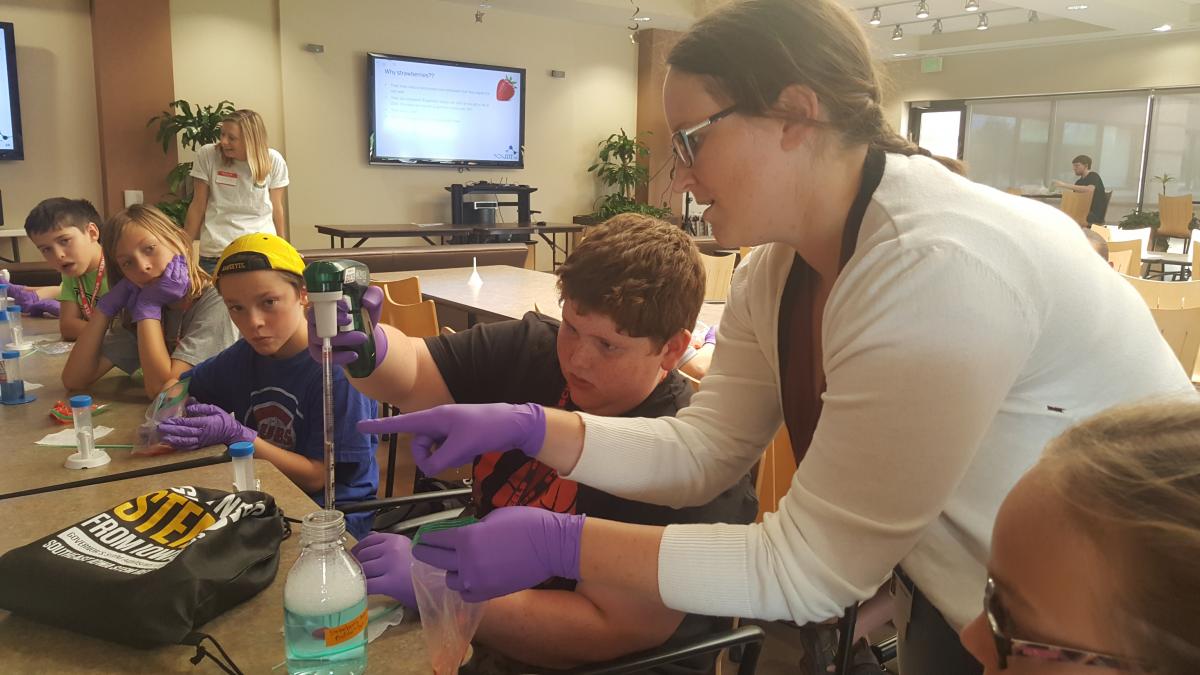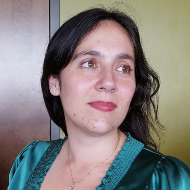In my first installment of this series reporting on NCSE’s first-ever summer evolution camp, I talked about how we arranged some of the necessary logistics to get our cool free summer camp up and rolling, and then almost immediately ran into creationist students.
What did I do when kids offered negative, creationist reactions to evolution? I wrote them down on the board with the other kids’ comments. I didn’t react negatively to the kids. I didn’t argue with the children or tell them they were wrong. And what happened?
The kids in question got to see what other children in the camp thought without being marginalized or excluded. They got to see that when most other children thought of the word “evolution”, the first words that came to mind were words like “change”, “dinosaurs”, and “DNA”.
I and the other volunteers also spent time talking with kids in small groups about evolution. We were very impressed by the depth of content knowledge many of the children possessed, including that significant minority of creationist students in the camp. We had more than one kid in the camp who associated “lies” with evolution. We also had kids who primarily associated words like “Armageddon”.
“I think, the end of the world,” one boy whispered to me. “Because, if things change, they only get worse.”
First reaction? That is super depressing. Second reaction? That is super interesting.
By refusing to act negatively or with hostility to our creationist students, by treating them the same as kids who were accepting of evolution, we got to hear more about their emotional reactions to evolution.
For most of these students, their education about evolution had gotten very tied up with fear. They had feelings that people who believed in evolution were mean or bad, that such people wanted to lie to them, and had, understandably, a child’s idea about lies. They didn’t conceive of the creationist/evolution debate as a conflict of belief vs. evidence, a debate over valid sources of knowledge, or a complex sociological issue. They saw it as truth and lies, and as we all know only mean people tell lies. In their minds, it seemed clear that “belief in evolution” was a cultural marker associated with outsiders, and that such outsiders were probably bad people who did not share any other values with insiders.
This, of course, is not true. By putting some humanity into these children’s experience of evolution education, I think we were able to start them thinking about evolution a little differently. By refusing to fight about evolution, but instead calmly informing the students what scientists and experts thought, we failed to fulfill their expectations of outsider behavior. From the perspective of the kids, the volunteer camp leaders were definitely talking about evolution, but for some reason they were not mean or argumentative. Instead, they were nice and giving out sandwiches. Maybe they weren’t outsiders, after all.
I did not focus on the creationist associations when we first talked about evolution with the campers. I just wrote them down with the other suggestions and then focused on what I thought would most productively drive discussion.
In this case, I wanted to talk about DNA. That’s because after lunch we were going to visit one of the world’s premiere producers of DNA for laboratory environments, Integrated DNA Technologies. We spent some time talking about DNA as the vehicle for evolutionary change with the children. This was a valuable strategy when working with creationist students. Most of these students had been taught arguments for refuting evolution as it related to organisms, but few had been taught arguments related to genetics. Without canned responses to give, the kids seemed interested to listen and learn.
All the children were very excited to visit the labs. Our kids went on a tour of the facility where they saw awesome giant machines, learned about various careers, and met many different types of engineers and scientists. They also got to “do real science!”, a phrase many of them gleefully exclaimed. After a brief lecture where more nice, calm, professional adults talked about what DNA was and how it related to evolution, professionals at IDT led the students in extracting DNA from strawberries using basic equipment and reagents.

The kids were so excited by this exercise. They felt very important and professional to get to wear gloves and handle sterile tubes. They were allowed to bring home vials of the DNA they extracted. Some of the kids carried these vials around all week as proof that they were now “real scientists”. Not only was this super-adorable, it was very nice from an educational perspective. The kids had a discussion about DNA’s crucial role in evolution, and then they got to physically hold DNA. DNA wasn’t a lie or an idea. DNA was a thing they could see. DNA was a thing people could make and sell. DNA was the thing behind all the jobs they saw all the nice people doing. Good jobs, that paid for the good cars in the parking lot and the good clothes the people were wearing.
Kids notice that kind of thing even if we want to think they don’t. One of the factors that convinced me to focus on my education as a kid was definitely looking at the kind of lives led by people who were highly educated. I wanted that kind of a life. Seeing that kind of a life, and seeing people do jobs that led to that kind of a life, helped me believe that such a life was something I could have.
The kind of career modeling we were able to do in our camp, combined with an open acceptance of evolution, is not what our pro-science community generally pictures when we think about how to deal with conflict with creationist students. However, I will freely admit it is 100% what I picture. This camp gave me a great opportunity to test another major strategy in my no-fighting approach to evolution education. I wanted to show the kids what accepting science could give them.
How did it work out? Keep reading, we’ll have another installment up tomorrow.

